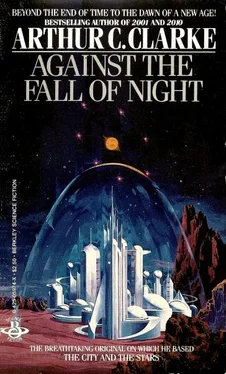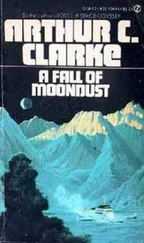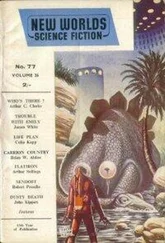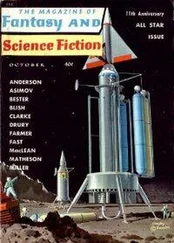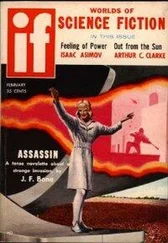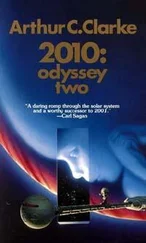Arthur Clarke - Against the Fall of Night
Здесь есть возможность читать онлайн «Arthur Clarke - Against the Fall of Night» весь текст электронной книги совершенно бесплатно (целиком полную версию без сокращений). В некоторых случаях можно слушать аудио, скачать через торрент в формате fb2 и присутствует краткое содержание. Год выпуска: 1948, Издательство: Better Publications, Inc., Жанр: Фантастика и фэнтези, на английском языке. Описание произведения, (предисловие) а так же отзывы посетителей доступны на портале библиотеки ЛибКат.
- Название:Against the Fall of Night
- Автор:
- Издательство:Better Publications, Inc.
- Жанр:
- Год:1948
- ISBN:нет данных
- Рейтинг книги:5 / 5. Голосов: 1
-
Избранное:Добавить в избранное
- Отзывы:
-
Ваша оценка:
- 100
- 1
- 2
- 3
- 4
- 5
Against the Fall of Night: краткое содержание, описание и аннотация
Предлагаем к чтению аннотацию, описание, краткое содержание или предисловие (зависит от того, что написал сам автор книги «Against the Fall of Night»). Если вы не нашли необходимую информацию о книге — напишите в комментариях, мы постараемся отыскать её.
Against the Fall of Night — читать онлайн бесплатно полную книгу (весь текст) целиком
Ниже представлен текст книги, разбитый по страницам. Система сохранения места последней прочитанной страницы, позволяет с удобством читать онлайн бесплатно книгу «Against the Fall of Night», без необходимости каждый раз заново искать на чём Вы остановились. Поставьте закладку, и сможете в любой момент перейти на страницу, на которой закончили чтение.
Интервал:
Закладка:
Arthur C. Clarke
Against the Fall of Night
To Johnnie
PROLOGUE
Not once in a generation did the voice of the city change as it was changing now. Day and night, age after age, it had never faltered. To myriads of men it had been the first and the last sound they had ever heard. It was part of the city: when it ceased the city would be dead and the desert sands would be settling in the great streets of Diaspar.
Even here, half a mile above the ground, the sudden hush brought Convar out to the balcony. Far below, the moving ways were still sweeping between the great buildings, but now they were thronged with silent crowds. Something had drawn the languid people of the city from their homes: in their thousands they were drifting slowly between the cliffs of colored metal. And then Convar saw that all those myriads of faces were turned towards the sky.
For a moment fear crept into his soul-fear lest after all these ages the Invaders had come again to Earth. Then he too was staring at the sky, entranced by a wonder he had never hoped to see again. He watched for many minutes before he went to fetch his infant son.
The child Alvin was frightened at first. The soaring spires of the city, the moving specks two thousand feet below-these were part of his world, but the thing in the sky was beyond all his experience. It was larger than any of the city’s buildings, and its whiteness was so dazzling that it hurt the eye. Though it seemed to be solid, the restless winds were changing its outlines even as he watched.
Once, Alvin knew, the skies of Earth had been filled with strange shapes. Out of space the great ships had come, bearing unknown treasures, to berth at the Port of Diaspar. But that was half a billion years ago: before the beginning of history the Port had been buried by the drifting sand.
Convar’s voice was sad when presently he spoke to his son.
“Look at it well, Alvin,” he said, “It may be the last the world will ever know. I have only seen one other in all my life, and once they filled the skies of Earth.”
They watched in silence, and with them all the thousands in the streets and towers of Diaspar, until the last cloud slowly faded from sight, sucked dry by the hot, parched air of the unending deserts.
1
THE PRISON OF DIASPAR
The lesson was finished. The drowsy whisper of the hyp-none rose suddenly in pitch and ceased abruptly on a thrice repeated note of command. Then the machine blurred and vanished, but still Alvin sat staring into nothingness while his mind slipped back through the ages to meet reality again.
Jeserac was the first to speak: his voice was worried and a little uncertain.
“Those are the oldest records in the world, Alvin-the only ones that show Earth as it was before the Invaders came. Very few people indeed have ever seen them.”
Slowly the boy turned towards his tutor. There was something in his eyes that worried the old man, and once again Jeserac regretted his action. He began to talk quickly, as if trying to set his own conscience at ease.
“You know that we never talk about the ancient times, and I only showed you those records because you were so anxious to see them. Don’t let them upset you: as long as we’re happy, does it matter how much of the world we occupy? The people you have been watching had more space, but they were less contented than we.”
Was that true? Alvin wondered. He thought once more of the desert lapping round the island that was Diaspar, and his mind returned to the world that Earth had been. He saw again the endless leagues of blue water, greater than the land itself, rolling their waves against golden shores. His ears were still ringing with the boom of breakers stilled these thousand million years. And he remembered the forests and prairies, and the strange beasts that had once shared the world with Man.
All this was gone. Of the oceans, nothing remained but the grey deserts of salt, the winding sheets of Earth. Salt and sand, from Pole to Pole, with only the lights of Diaspar burning in the wilderness that must one day overwhelm them.
And these were the least of the things that Man had lost, for above the desolation the forgotten stars were shining still.
“Jeserac,” said Alvin at last, “once I went to the Tower of Loranne. No one lives there any more, and I could look out over the desert. It was dark, and I couldn’t see the ground, but the sky was full of colored lights. I watched them for a long time, but they never moved. So presently I came away. Those were the stars, weren’t they?”
Jeserac was alarmed. Exactly how Alvin had got to the Tower of Loranne was a matter for further investigation. The boy’s interests were becoming-dangerous.
“Those were the stars,” he answered briefly. “What of them?”
“We used to visit them once, didn’t we?”
A long pause. Then, “Yes.”
“Why did we stop? What were the invaders?”
Jeserac rose to his feet. His answer echoed back through all the teachers the world had ever known.
“That’s enough for one day, Alvin. Later, when you are older, I’ll tell you more-but not now. You already know too much.”
Alvin never asked the question again: later, he had no need, for the answer was clear. And there was so much in Diaspar to beguile the mind that for months he could forget that strange yearning he alone seemed to feel.
Diaspar was a world in itself. Here Man had gathered all his treasures, everything that had been saved from the ruin of the past. All the cities that had ever been had given something to Diaspar: even before the coming of the Invaders its name had been known on the worlds that Man had lost.
Into the building of Diaspar had gone all the skill, all the artistry of the Golden Ages. When the great days were coming to an end, men of genius had remoulded the city and given it the machines that made it immortal. Whatever might be forgotten, Diaspar would live and bear the descendants of Man safely down the stream of Time.
They were, perhaps, as contented as any race the world had known, and after their fashion they were happy. They spent their long lives amid beauty that had never been surpassed, for the labour of millions of centuries had been dedicated to the glory of Diaspar.
This was Alvin’s world, a world which for ages had been sinking into a gracious decadence. Of this Alvin was still unconscious, for the present was so full of wonder that it was easy to forget the past. There was so much to do, so much to learn before the long centuries of his youth ebbed away.
Music had been the first of the arts to attract him, and for a while he had experimented with many instruments. But this most ancient of all arts was now so complex that it might take a thousand years for him to master all its secrets, and in the end he abandoned his ambitions. He could listen, but he could never create.
For a long time the thought-converter gave him great delight. On its screen he shaped endless patterns of form and color, usually copies-deliberate or otherwise-of the ancient masters. More and more frequently he found himself creating dream landscapes from the vanished Dawn World, and often his thoughts turned wistfully to the records that Jeserac had shown him. So the smouldering flame of his discontent burned slowly towards the level of consciousness, though as yet he was scarcely worried by the vague restlessness he often felt.
But through the months and the years, that restlessness was growing. Once Alvin had been content to share the pleasures and interests of Diaspar, but now he knew that they were not sufficient. His horizons were expanding, and the knowledge that all his life must be bounded by the walls of the city was becoming intolerable to him. Yet he knew well enough that there was no alternative, for the wastes of the desert covered all the world.
Читать дальшеИнтервал:
Закладка:
Похожие книги на «Against the Fall of Night»
Представляем Вашему вниманию похожие книги на «Against the Fall of Night» списком для выбора. Мы отобрали схожую по названию и смыслу литературу в надежде предоставить читателям больше вариантов отыскать новые, интересные, ещё непрочитанные произведения.
Обсуждение, отзывы о книге «Against the Fall of Night» и просто собственные мнения читателей. Оставьте ваши комментарии, напишите, что Вы думаете о произведении, его смысле или главных героях. Укажите что конкретно понравилось, а что нет, и почему Вы так считаете.
